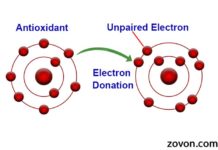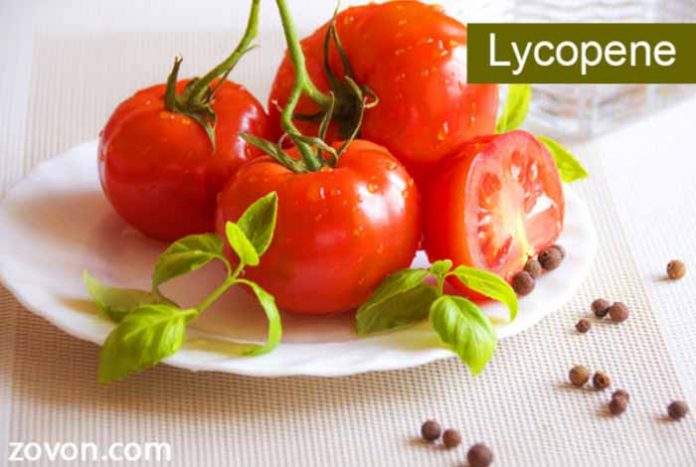
Lycopene belongs to a class of pigments known as carotenoids and which is red in color. It is found mainly in tomatoes and berries. The red color of tomatoes may be attributed to the presence of lycopene in them. It is also found in other red fruits and vegetables like carrots and watermelons.
It has high antioxidative property as compared to other carotenoids as it quickly reacts with a single element of oxygen. Lycopene is a fat-soluble antioxidant thus, it protects lipids and proteins from the damage caused due to oxidation.
Its molecular formula is C40H56. Since Lycopene is soluble in fat, so it is found in fatty tissues in the body. Lycopene is also known as rhodopurpurin. Although lycopene contains carotenoid yet it is not a vitamin. Lycopene is a phytonutrient that is present in plants.
Structure:
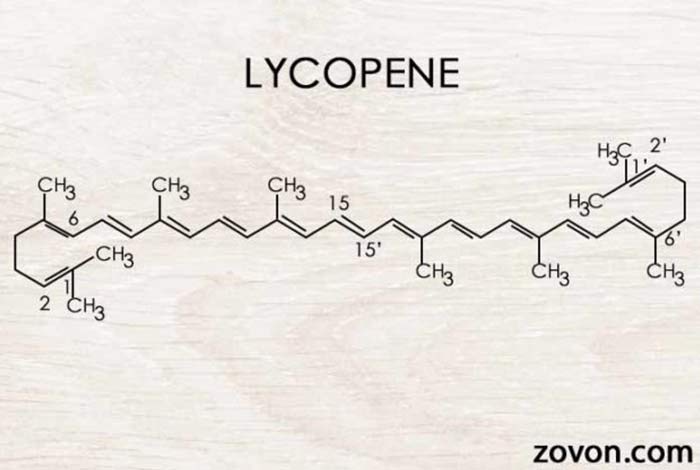
The structure of lycopene contains a chain of double bonds making it the longest structure of all carotenoids.
The ball and stick model of Lycopene:
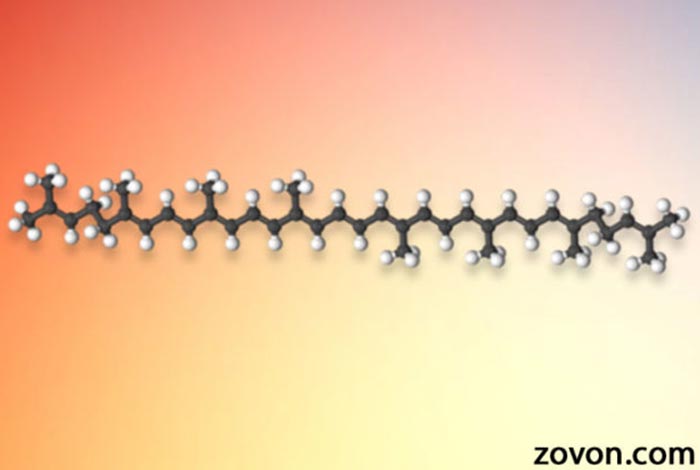
Sources of Lycopene:
The best source of lycopene is tomato and tomato-based products. Around 25mg of lycopene can be extracted from 250ml of tomato juice. The following table suggests the amount of lycopene in various fruits.
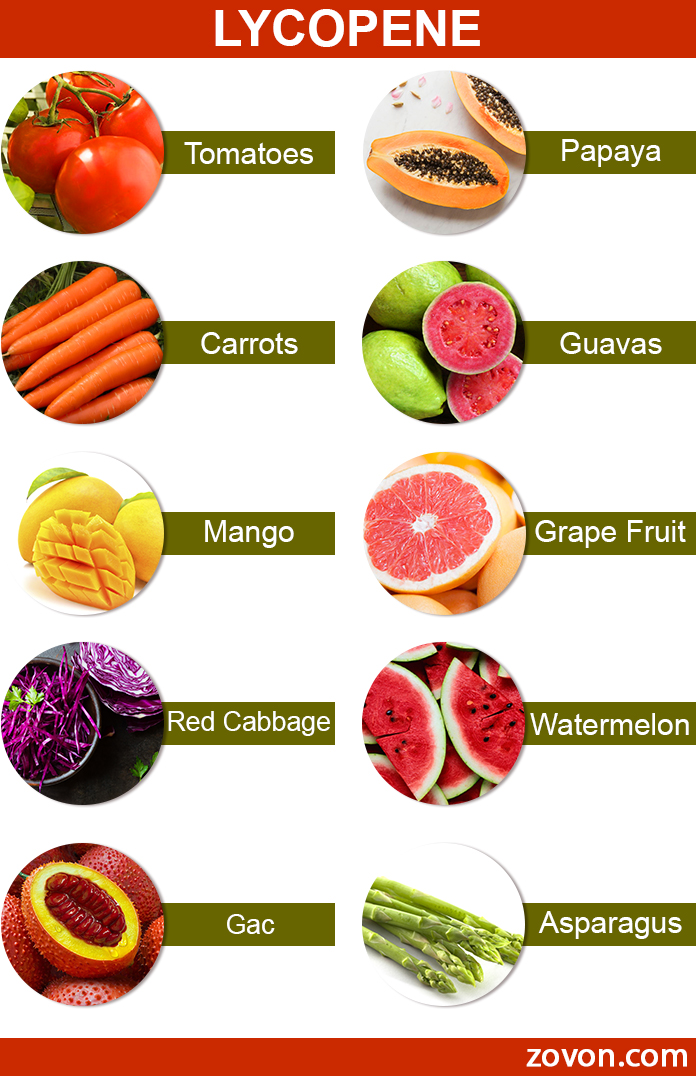
|
Fruit |
Amount of Lycopene in 100gm |
|
Guavas |
5205 micrograms |
|
Tomatoes |
3041 micrograms |
|
Grapes |
1135 micrograms |
|
Asparagus |
30 micrograms |
|
Red Peppers |
484 micrograms |
How does Lycopene work?
Lycopene is a powerful antioxidant. It protects the cell membranes by only allowing healthy nutrients inside the membrane and does not let toxic material enter the cell membrane. Lycopene travels through the blood and gets stored in the liver and adrenal glands. It is extremely helpful in keeping the body well-resistant against infections.
Benefits of Lycopene:
Acts as an antioxidant:
Since Lycopene is an antioxidant so it prevents cancerous cells from getting formed in the body. It is also helpful in fighting heart diseases. It also helps in slowing down the aging process.
Helps against cancer:
Lycopene offers protection against lung, prostate and stomach cancers. Cancers affecting other organs are also prevented by regular use of lycopene. It helps by fighting against free radicals. Free radicals if left untreated cause damage to liver, and DNA. Lycopene attacks free radicals and renders them ineffective thereby protecting damage. Hence many cancers like ovarian cancer, pancreatic cancer, prostate cancer and stomach cancer can be prevented with the use of lycopene and its supplements.
Fights skin damage:
Foods containing lycopene reduce skin damage by fighting against ultraviolet radiations caused due to the sun.
Has an anti-rubefacient effect:
Consumption of lycopene reduces skin redness and kills dead skin cells thereby rejuvenating skin.
Promotes skin fairness:
Skin color is controlled by a substance called melanin. Lycopene regulates formation of melanin thereby reduces the darkness of skin.
Anti-ageing properties:
When consumed lycopene gets converted to Vitamin A which reduces the aging effect.
Solution for hair loss:
Excess DHT can cause hair loss. Consumption of Lycopene reduces the levels of DHT thereby slowing the process of hair loss.
Helps in hair growth:
A good amount of lycopene consumption helps in scalp’s ability to grow hair and reducing hair fall.
Aids in the prevention of heart disease:
Intake of lycopene prevents bad cholesterol from getting oxidized and hence prevents it from getting blocked in the arteries. Lycopene is known for thinning of blood thereby preventing blood coagulation.
Helps regulate asthmatic conditions:
Some research suggests that lycopene benefits people with asthma as it shows antioxidant activity.
Plays a positive role in treating male infertility:
A diet rich in lycopene like tomatoes helps men struggling with fertility issues.
Maintaining bone health:
Lycopene helps patients with osteoporosis or conditions related to bone loss.
Controlling diabetes:
Use of lycopene results in a decrease of blood sugar levels thereby having a positive effect on type 2 diabetics.
Reversing stroke:
Susceptibility to stroke decreases with consumption of a diet rich in lycopene.
Food coloring:
It imparts a deep red colored flavor to foods when added artificially.
Helpful against macular degeneration:
Use of lycopene protects the eyes and also prevents loss of vision and cataracts.
Prevention of gum disorders:
Patients suffering from gum disorders like bleeding and plaque may find relief in lycopene supplements.
Helpful in reducing mouth sores:
Some studies suggest that lycopene helps in reducing mouth inflammation. However, there is not enough evidence to support this fact.
Side Effects of Lycopene:
- Various conditions may result from improper use of lycopene.
- It can cause allergies and reactions in the skin.
- It must be used cautiously by people who have stomach related issues like ulcers.
- It can also result in very low blood pressure and should not be consumed by people with bleeding disorders.
- Pregnant and breastfeeding women should consult their physicians before consumption of lycopene supplements.
- Sometimes it can also cause pain in chest and heart attack. It can even change the color of skin. This condition is known as lycopenodermia.
- Other common side effects are bloating of stomach and diarrhea. Pain in the stomach may persist with irregular bowel movements. It may sometimes cause loose motions.
FAQs: What people normally want to know about Lycopene?
1.What is the amount of lycopene that can be consumed a day?
A portion of 5 servings of deep red colored fruits like apple, guavas etc. should be consumed in a day for attaining maximum benefits. However, there is no justification of appropriate intake of lycopene. The appropriate dosage has been estimated at 5-8mg per day.
2. What are some healthiest lycopene-containing fruits?
Tomatoes, apples, watermelons, pomegranates, cherries are some healthy foods that naturally contain lycopene.
3. Is Lycopene more beneficial when taken naturally or in supplement form?
Tomatoes when processed, produce lycopene in a form that is easily digested by the body. The supplement form of lycopene is nearly as effectively used by the body as that found in food. Some studies also suggest that when tomato juice is mixed with oil and heated, lycopene levels increase as compared to its raw form.
4. What are the safety measures associated with the use of lycopene?
Lycopene is not a toxic substance and it does not have any notable side effects. However, its excessive use can lead to change in skin color.
5. What is the function of lycopene?
Lycopene prevents lipids and DNA from getting damaged due to oxidation. It has been widely recognized for its antioxidant property.
6. Is Lycopene available as supplements in market?
Lycopene is available in the market in form of lycopene capsules, tablets and powder. To get greater benefits from lycopene from tomatoes, they must first be processed or cooked in oil and then consumed as it gets better absorbed in the body.



